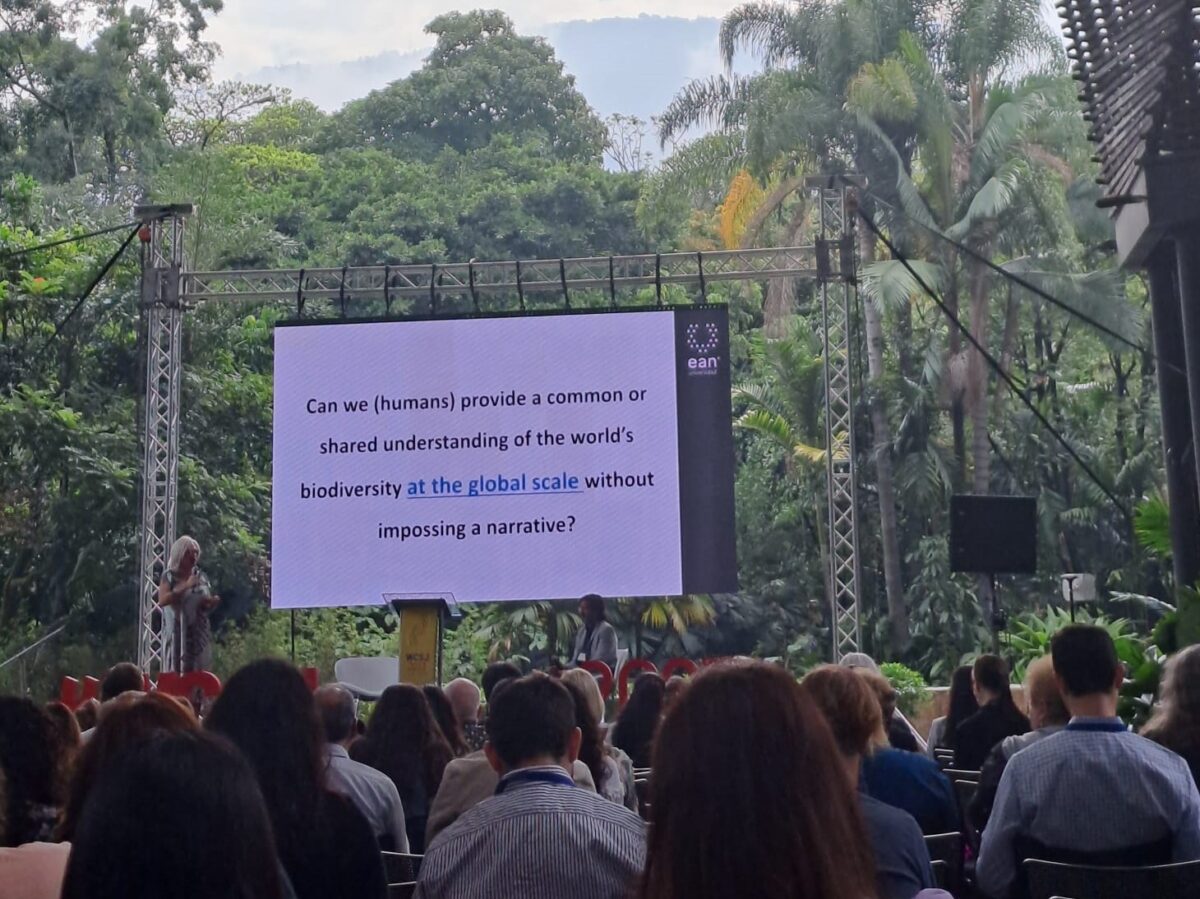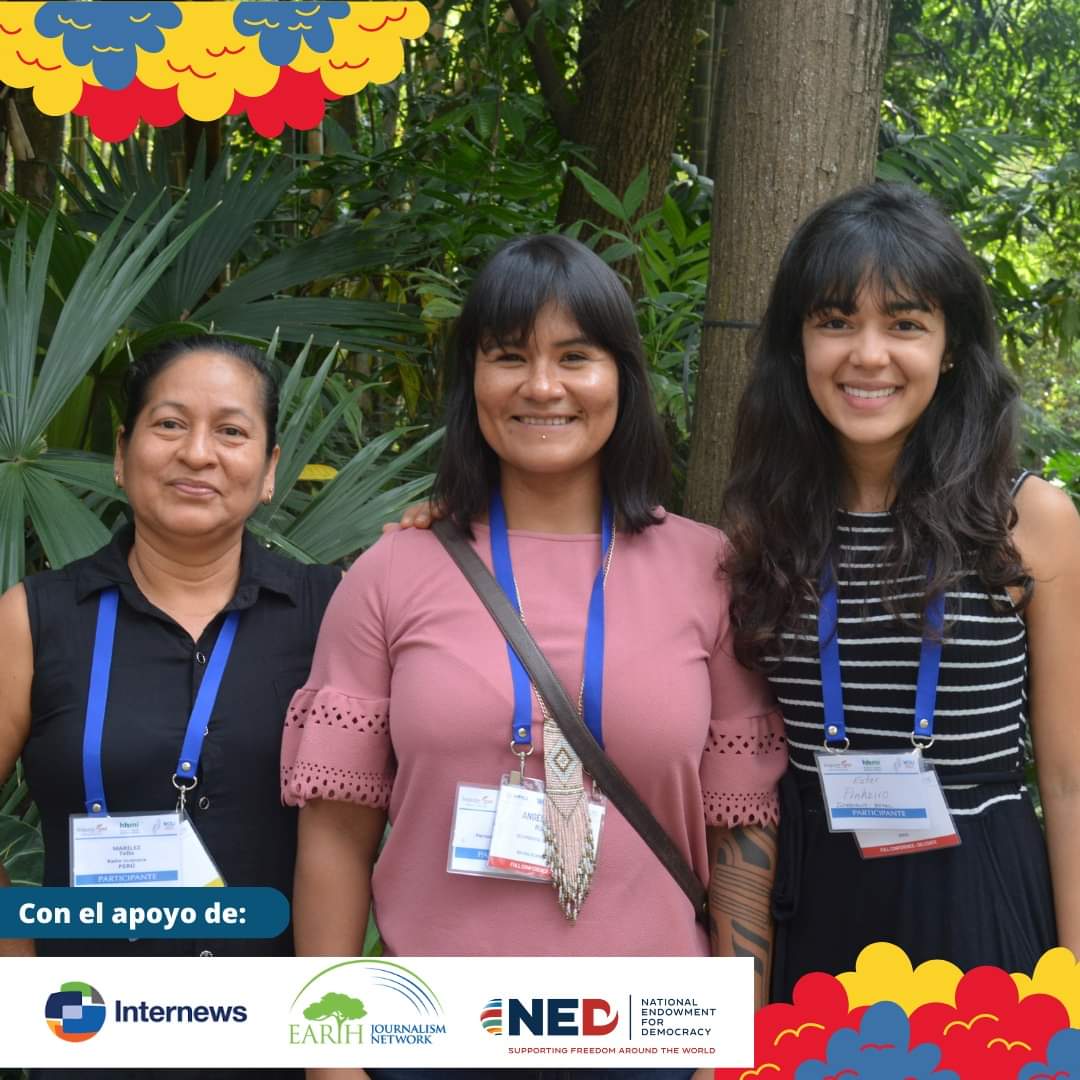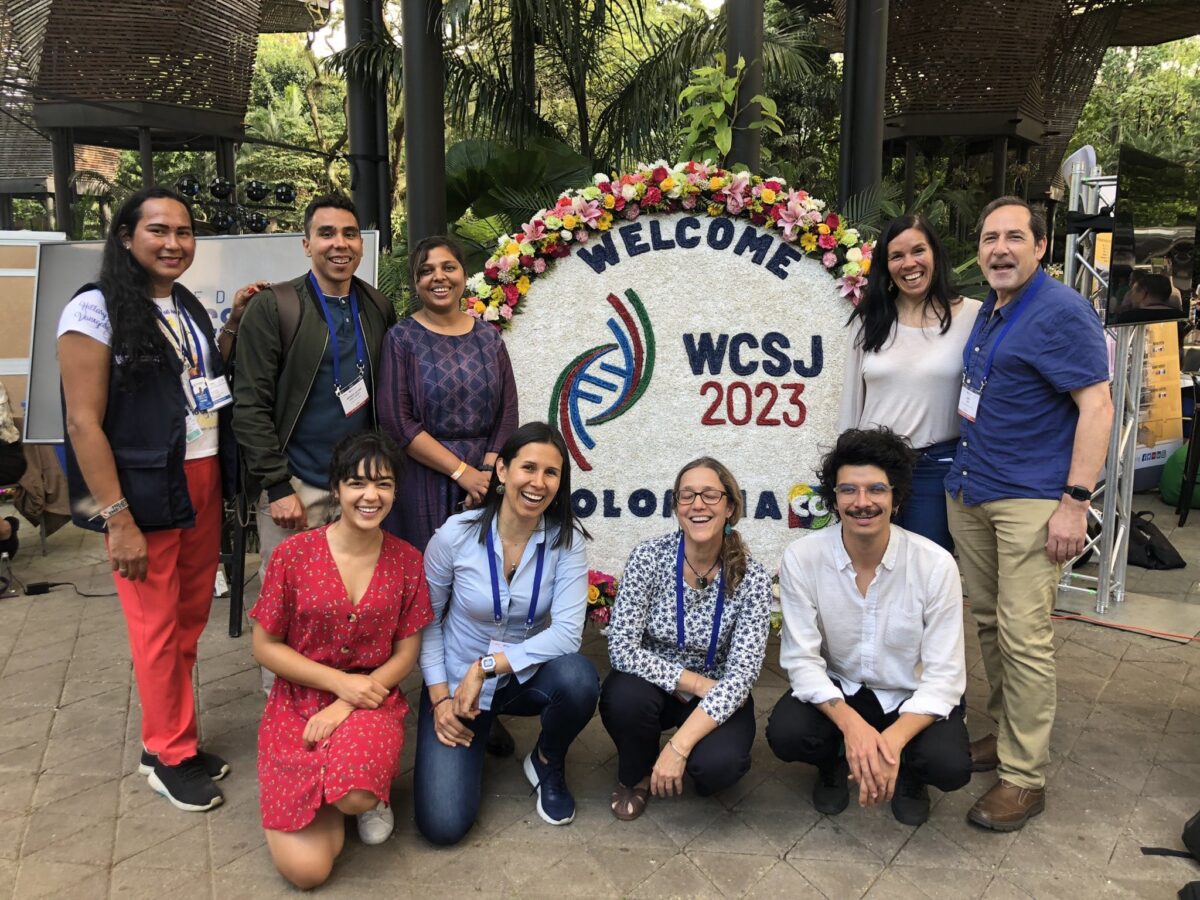By Ester Pinheiro, HJN Fellow at the World Conference for Science Journalists
The World Conference for Science Journalists 2023 (WCSJ) took place in Colombia, Medellín from March 27 to 31st. It had cutting-edge educational opportunity workshops, a multitude of seminars, lectures, and access to expertise from around the world about science, health, and climate change for the purpose of strengthening science journalism.
One of the mainstreaming perspective in many discussions at the conference was on decolonizing science. This was also the theme featured at the open ceremony. Brigitte Baptiste is an ecologist of the Colombian cultural landscape and an expert on environmental issues and biodiversity in Colombia. She is the first trans woman dean of a Latin American university. Brigitte intrigued me with her sharp and necessary questions. Take the one below, for example:

“Can we provide a common or shared understanding of the world’s biodiversity at global scale without imposing a narrative? Do global recommendations and policies for climate action and biodiversity sustainability with a universal approach really work for the global south? How can marginalized groups have their voices listened to at global scale decision-making spaces? What are our definitions of science and climate action? ”
For Brigitte Baptiste, the key to all of these questions is to have a decolonial perspective towards science and global solutions, meaning that each region needs and context should be taken into account. “Since science is not unique, it speaks with the languages of nations, and it speaks as extensively as each allows it, despite its apparent neutrality in English. (Before it was Latin, which mixed sacred and vernacular knowledge). Better mathematics that can accommodate or promote infinite variations in ontologies, far from binarisms or univocal hierarchies. There are as many genders as we want, to the point that creativity in it is one of the central aspects of the conscious construction of world experiences. Far beyond the LGBTQ+ taxonomy that borders on the surreal”, she says.
Therefore, decolonizing science matters because we must recognize people’s contexts and cultures. It is also about acknowledging the work of writers, researchers (actors and producers) of knowledge of all genders and races from the Global South, as a way of tensioning social relations to repair and rebuild science narratives.
Gender Equality and Science
In general, the seminars and discussions at the WCSJ covered a wide variety of subjects related to science, as climate change and mental health with a diversity of speakers from around the world. Throughout the discussions, I was particularly interested on how we can grow research equity and representation, having a dialogue with women researchers and journalists in the event.

I was eager to understand how the decolonization of science can also contribute to gender equality. Brigitte Baptiste believes an intersectional gender perspective can point out an immense diversity and that can work as a solution tool for gender equity. “There is a myriad of emerging conditions that show a universe in turmoil, totally reluctant to the classic control mechanisms of disciplinary, religious and violent machismo discourses, disseminated by marketing strategies. That is nothing new, of course, what is new is the link that the feminine, polysemic, creates between all identities, and the power that it gives them, even appropriating eroticism, the greatest force of connection between living beings.”
My WCSJ Experience
My work at the podcast Feminismos del Sur aligns with the discussions on decolonizing science at the WSCJ conference mentioned by Brigitte Baptiste, as it is a multilingual podcast focused on amplifying the voices from the global south with a gender perspective. Therefore, the discussions on the panels were fascinating and enriching to my work as I’m building narratives from the south. Thus, I feel very honored to have been a Health Journalism Network (HJN) fellow as I had the opportunity to meet incredible journalists working on science, exchange solutions and ideas as independent and entrepreneurs journalists, connecting for future collaborations.

Besides, the WCSJ was a great opportunity for professional networking and connection with journalists and professionals in the LAC region and across the globe, with venues for collaboration on science and health coverage. Through challenging discussions in this inspiring setting, I was able to gather with other journalists as peers, helping one another to learn, to grow, and to thrive.